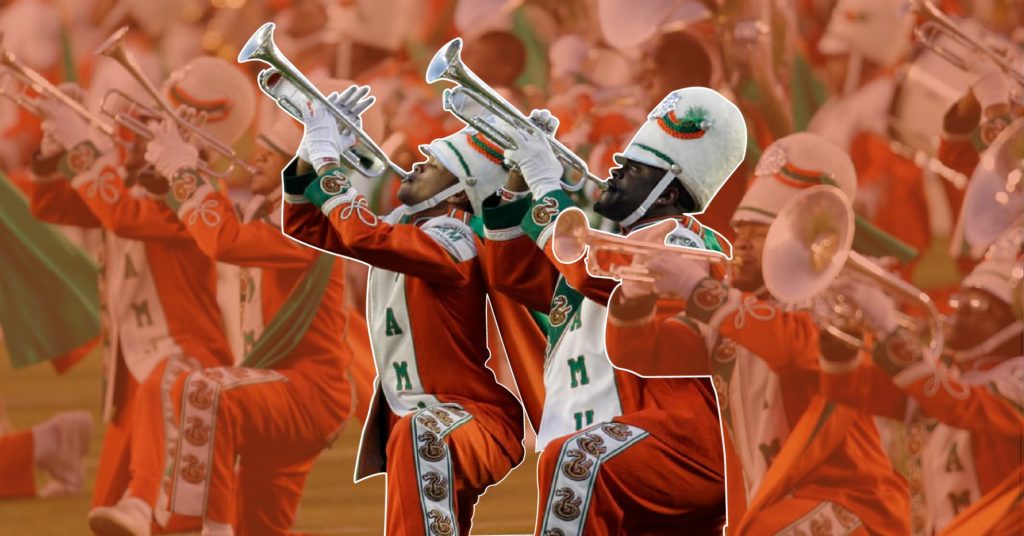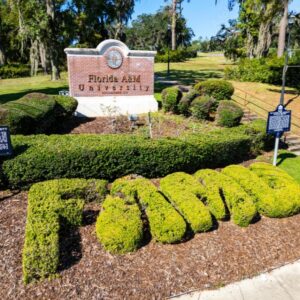Campus Life | October 13th, 2020
The Marching 100 Adapting to the Pandemic
By: Tazjhani Baker

For years, The Incomparable Marching 100 has been bringing the sound to our beloved institution. Whether it is fans attending the football game to see the notorious halftime show or supporting them at the battle of the bands, The Marching 100 has always brought joy to the highest of seven hills.
Florida A&M University made the decision to reopen campus with distinct safety measures that included the limitation of campus events. Some of our favorite places to hear The Marching 100, such as football games, pep rallies and convocations, have all been eliminated from the university schedule.
FAMU’s marching band has been credited for no less than 30 innovative techniques which have become standard operating procedures for many high school and collegiate marching band programs throughout the nation. Penchant for the precision demonstrated in every aspect of its performance is a key to the success of the “100.”
On June 1, 1946, Dr. William P. Foster became the director of bands at FAMU with 16 members and created what is known today as “The Most Imitated Marching Band in America.” He is credited with revolutionizing marching band techniques and reshaping the world’s concept of the collegiate marching band. His textbook “Band Pageantry” is considered to be the “bible” for the marching band.
The Marching 100’s list of accolades are loaded, with both superbowl and award show performances, as well as playing for many notable people such as Barack Obama. With appearances in Ebony Magazine and Sports Illustrated as well as a performance at the 15th Anniversary Celebration of Walt Disney World on national television under its belt, the legacy of The Marching 100 is undeniable.
Incoming piccolo freshman Samantha Saint Louis said that she is doing her best to grasp the understanding of the 100 so that she can become part of the legacy.
“It’s more than a legacy. It’s a family and a way of life that once you’re a part of it you can’t let go,” Saint Louis said. “The 100 has inspired me since the first time I heard a piccolo chirp and still inspires me to want and do more.”
Dr. Foster retired after 52 years of service to the university, the state of Florida, the nation and the world. As of August 9, 1998, he has held the positions of emeritus professor, chairman of the music department emeritus and director of bands emeritus. His legacy, influence and presence is still being felt as the marching band continues to break ground and receive national attention and awards.
“The Legacy of The Marching 100 is something unlike any other. It means that we have to do a lot of planning in terms of our performances,” Moises Martinez, a fourth year environmental studies student from Hollywood, Fla., said. “Ensuring that the band is well and healthy as we continue through this pandemic is our top priority.”;
Martinez currently serves as the head drum major for The Marching 100. “As we continue the semester without football, the main goal is to keep the band up and going in terms of giving our new members the basics so they can be prepared to perform the basic mechanics of a member of The Marching 100 while also giving our fans and supporters a small snippet as we proceed throughout this year.”
The Marching 100 has continued to set the standard for bands across the land. The term incomparable is more than fitting. Along with their many accomplishments, it seems that being able to maintain their premier status during a pandemic can also make the list of reasons that they are “The Most Imitated Marching Band in America.” One thing is certain, whether live or from home, our rattler nation will always be able to enjoy the sounds of the “100”.






